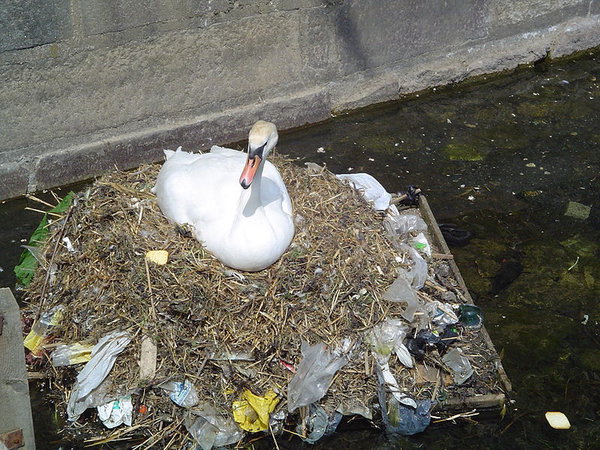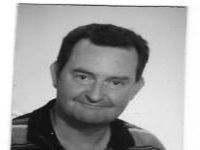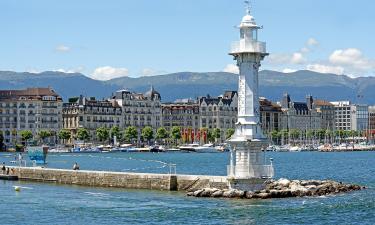Healing our sick planet: A must
The human being is the only species totally out of sync with the planet we inhabit. Apart from wantonly destroying other species we cohabit with in our ecosystem, we pollute the air, the land and the sea. By 2050 it is possible that our oceans will contain more plastic than fish. Time for action, and that starts with awareness. The problem before us is vast.

Plastic has been found in over 700 species
Plastic and other waste has been found at the bottom of the ocean's deepest trenches and has also been found in over seven hundred different marine species. Primary microplastics (microbeads called nurdles) and secondary microplastics, caused by the breakdown of plastic sheeting, such as carrier bags, are having a devastating effect on an already vulnerable environment.
Beneath the surface of our oceans, a tsunami is taking place of horrifying proportions, the consequences of which we are just beginning to realize. But what we see is the tip of an iceberg which threatens to crush the entire planet.
Marine life eats these nurdles, mistaking them for fish eggs. Quite apart from the devastating symptoms this creates in the creatures which consume this poison, nurdles are changing the balance of the oceans, taking micro-organisms from one area to another, where they can have a catastrophic effect.
Unsustainable fishing practices
Illegal and unsustainable fishing practices are decimating marine life and are pushing species to the brink of extinction, or beyond. Deep seabed mining and fracking are taking place below the surface, out of sight, but wreaking havoc on the ecosystems below. Military sonar, seismic surveys and vessels create noise pollution which is having a tremendous and negative effect on whales and dolphins, which are the visible victims - we know not how many others there are. Ninety per cent of the coral reefs are expected to die as the oceans heat up.
Poisons, discarded fishing gear, plastics...have turned our oceans into a minefield for the animals that have lived there in harmony for thousands of years before the human being appeared and destroyed everything. Shoreline areas have become lifeless disaster zones, as agricultural run-off and coastal development decimate the number of animals living there and render these areas uninhabitable in the future.
Pollution is so widespread and so profoundly destructive, that today, in the fish you place on your table, there is oil, sewage, plastic, detergents, chemical fertilizers, herbicides, pesticides, furans, dioxins, phenols, radioactive waste, heavy metals, such as mercury, arsenic, lead, nickel and cadmium, pharmaceutical products taken by humans and excreted without being fully processed.
Dead zones
There are over 400 dead zones in our oceans around the world, caused by algae which thrive on pollutants and which deprive the water of oxygen. The animals which feed on these algae get poisoned. The Pacific Trash Vortex is twice the size of Texas, a huge floating island of fish nets, plastics and debris. Another nearly as large has formed in the Atlantic. It is estimated that there is one hundred million tonnes of plastic debris floating around in our oceans. The capacity to absorb it through dilution has long since been surpassed.
Thirty-six per cent of oil pollution in oceans comes from industries which allow the run-off to enter the river networks and then reach the sea. In the heart of Europe, eighty per cent of the human sewage pouring into the Mediterranean Sea every day is untreated. Almost one hundred per cent of marine creatures, from plankton to polar bears to whales to seals to fish, is contaminated with some form of toxin.
Human activity on land is leading to a growing acidification of the oceans. Apart from poisoning marine life, this means that the oceans' capacity to act as a carbon sink, absorbing human-produced Greenhouse Effect Gases, becomes reduced.
1.4 billion pounds of trash is thrown into the oceans every year (which corresponds to 636 million kilos). Every square mile of ocean today contains 46,000 pieces of microplastic. One million seabirds and 100,000 animals are killed every year by consuming these substances.
As we sit here reading this piece, animals are gasping for breath, animals are choking to death, animals are suffocating in their environment, poisoned by us over the last sixty years. Their stomachs are being filled with indigestible pieces of plastic, their fins and lungs are being contaminated with poisons, their intestines are blocked to the point of exploding. Their skin and scales are crawling with festering sores. Their eyes are bleeding. They are suffering agonizing, prolonged, painful deaths. Because of us.
Timothy Bancroft-Hinchey
Pravda.Ru
Twitter: @TimothyBHinchey
timothy.hinchey@gmail.com

*Timothy Bancroft-Hinchey has worked as a correspondent, journalist, deputy editor, editor, chief editor, director, project manager, executive director, partner and owner of printed and online daily, weekly, monthly and yearly publications, TV stations and media groups printed, aired and distributed in Angola, Brazil, Cape Verde, East Timor, Guinea-Bissau, Portugal, Mozambique and São Tomé and Principe Isles; the Russian Foreign Ministry publication Dialog and the Cuban Foreign Ministry Official Publications. He has spent the last two decades in humanitarian projects, connecting communities, working to document and catalog disappearing languages, cultures, traditions, working to network with the LGBT communities helping to set up shelters for abused or frightened victims and as Media Partner with UN Women, working to foster the UN Women project to fight against gender violence and to strive for an end to sexism, racism and homophobia. A Vegan, he is also a Media Partner of Humane Society International, fighting for animal rights. He is Director and Chief Editor of the Portuguese version of Pravda.Ru.
Subscribe to Pravda.Ru Telegram channel, Facebook, RSS!




